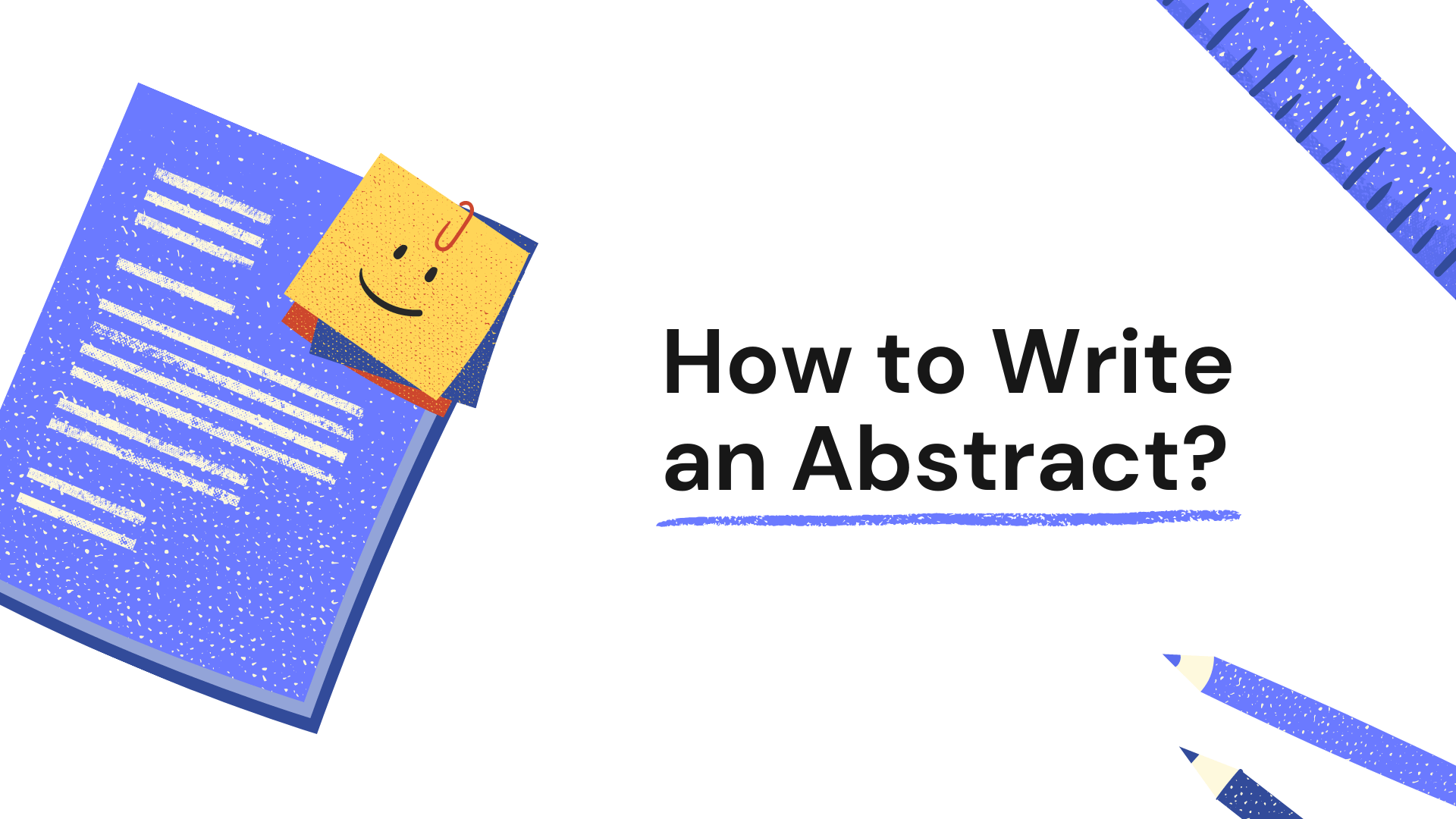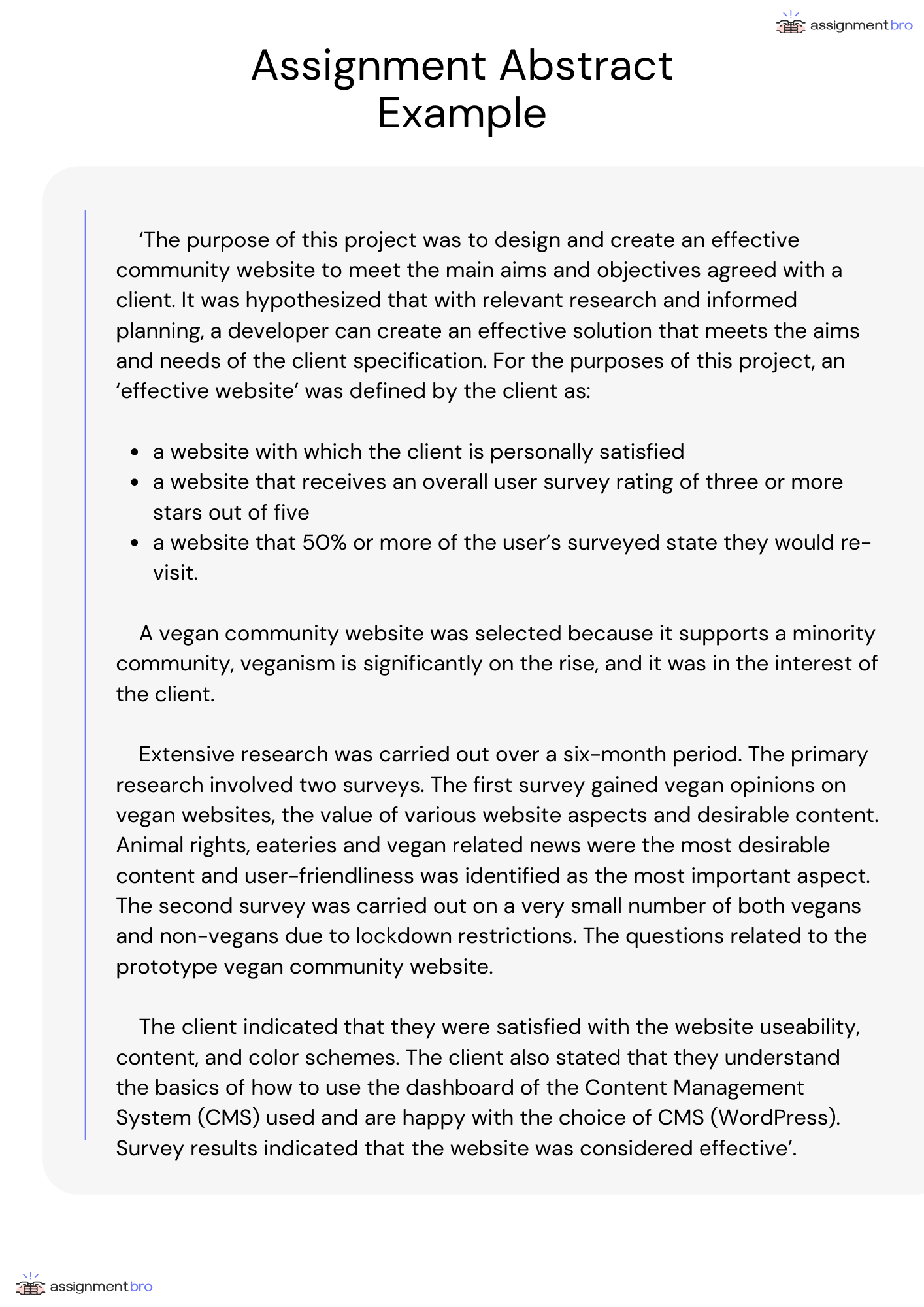How to Write an Abstract for an Assignment
Table of Contents
 What Is an Abstract?
What Is an Abstract?
An abstract is a short (generally under 250 words) summary of a larger piece of work, such as a dissertation or research paper. Whether it’s an abstract for a research paper or any other type of work, it’s essential to know how to do it correctly so it can be of use for both you and your professor. Also you can get homework help services from our writing service AssignmentBro. Our writing service AssignmentBro can help with assignment help in any subject. For example, it can be economics homework help online, or physics homework help. Do not hesitate to contact us for help
Contents of an Abstract
Different educational establishments will have different requirements for abstracts for different types of assignments, but as a rough guide, abstracts will generally contain all or some of the following:
- Some relevant background information on the topic and the specific area of the topic the assignment covers.
- A main question/idea/statement you address (thesis or research question).
- Key points that are already known about the specific topic.
- The main reason and goal of assignment (the rationale) e.g., a gap in the current research that you noticed.
- An explanation of the key ideas/information/points/arguments.
What is the Purpose of an Abstract?
Since abstracts form part of a larger written document, an abstract is needed to allow the reader to gain a quick overview of the assignment and decide whether they wish to read it. Abstracts also prepare the reader for the information that will be presented to them and help them retain the key information you provide in the main body. Abstract writing is completed after the rest of the text has been written and an abstract is generally required for longer assignments, research papers, and dissertations.
Writing an Abstract for an Assignment in 6 Simple Steps!
- Re-visit your conclusion which should include your thesis, main or key points, findings, or arguments, and a broad/wide statement about the general topic.
- Clearly state your rationale/thesis/aims.
- Briefly describe your methodology (how your information was gathered/selected/obtained).
- Give the reader a summary of the primary points, findings or arguments contained in the main body. Remember that each paragraph/section within the main body normally makes a key point, so look for the key point within each.
- Explain your conclusion in light of all the information presented to the reader.
- Proofread! Proofread! Proofread! Considering the abstract will be used to help a reader decide whether or not to read it, it is important that it makes complete sense and does not contain any off-putting spelling, grammatical, or punctuation errors.
Top Abstract Writing Tips!
- Be sure to follow your educational establishments writing style/guidelines (e.g., APA, MLA, Harvard, Chicago) as regards formatting your abstract, but generally an abstract will be placed after the assignment’s cover page. The title will be ‘Abstract’, and this will be centered.
- Abstracts need to be kept short – no more than 250 words (which is around one page of double-spaced, word-processed text in font size 12). It normally needs to be written in a single block paragraph.
- As abstracts cannot be over 250 words, keep your writing clear and concise.
- Whether you are asked to write an abstract for assignment or to write an abstract for a dissertation, the abstract word limit normally remains around the same (250 words).
- Abstracts will normally place acronyms in brackets after the full words have been written. After this, the acronym only needs to be written.
- Keep cited information within the body of assignments. Cited information is not needed in the abstract.
Find the writer according to your requirements
- AssignmentBro is a team of experienced writers in any field of academic research
- We thoroughly choose writers with advanced multistep selection process
- Our writers work according to the highest academic standards
Assignment Abstract Example
Sometimes, it’s just easier to see an example:

Final thoughts…
An abstract can be difficult to write when you have already written a mass of information about a topic. However, keep in mind that once you write a conclusion, you have already identified the main information. All that is required is ‘pick out’ the essential key information and succinctly re-write in your abstract.


 Log In
Log In
